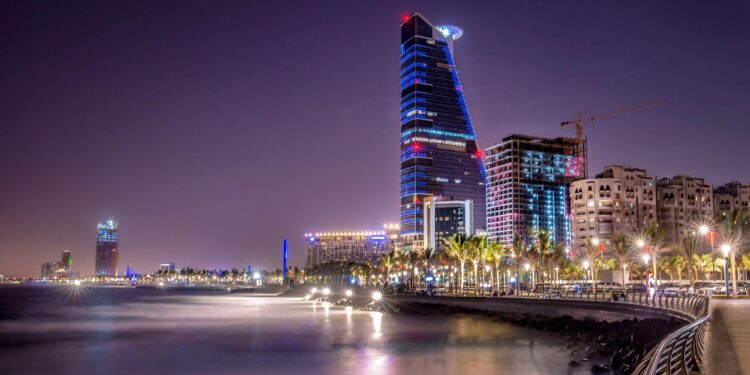The United Nations Global Supply Chain Forum (GSCF) will return in November 2026, hosted by the Kingdom of Saudi Arabia in partnership with the Saudi Ports Authority (MAWANI). Announced by UNCTAD Secretary-General Rebeca Grynspan at UNCTAD16 in Geneva, the biennial event aims to strengthen resilience and sustainability across international supply chains.
The forum will convene governments, business leaders and experts to tackle disruptions tied to geopolitical tensions, climate impacts and shifting trade patterns. Its goal is to advance practical solutions that make logistics more sustainable, inclusive and secure.
Outlook and challenges for maritime trade
UNCTAD warns the outlook for shipping remains fragile. Maritime transport carries over 80% of global merchandise trade, according to UNCTAD, and while seaborne trade grew 2.2% in 2024, it is projected to slow to 0.5% in 2025 before stabilizing at around 2% annually through 2030, also according to UNCTAD. The organization further notes that long-distance rerouting pushed ton-miles to record levels in 2024, raising emissions and costs, and that port waiting times have increased, especially in developing economies.
“We must ensure the triple transition—zero‑carbon shipping, digital systems and resilient, reconfigured trade routes—are just transitions,” said Ms. Grynspan. She emphasized the Forum’s role in driving collective action for resilient, sustainable and inclusive supply chains.
Priorities for the 2026 forum
Building on the inaugural GSCF in Bridgetown and ministerial discussions at UNCTAD16, the 2026 gathering will prioritize coordinated crisis-response mechanisms, policy and regulatory collaboration, and investment in sustainable, resilient infrastructure. It will also focus on least developed countries, small island developing states and landlocked developing countries facing freight costs up to three times the global average, according to UNCTAD.
Key policy priorities include:
- Strengthening critical infrastructure such as ports, corridors and inland transport nodes
- Accelerating digital trade systems while managing cybersecurity risks
- Supporting small businesses and vulnerable economies through streamlined trade, affordable finance and technical assistance
- Modernizing fleets and advancing low-carbon maritime practices
- Protecting and upskilling the transport workforce to ensure safety, inclusiveness and decent work
Saudi Arabia’s role and Vision 2030
“As a global hub connecting three continents, the Kingdom of Saudi Arabia is committed to resilient, human-centered and environmentally responsible supply chains,” said His Excellency Saleh bin Nasser Al-Jasser, Minister of Transport and Logistics Services of the Kingdom of Saudi Arabia. His Excellency affirmed the country’s focus on innovation and international cooperation to “protect people, preserve our planet and power sustainable prosperity.”
Aligned with Vision 2030, Saudi Arabia’s partnership with UNCTAD will support capacity building in transport, logistics and trade facilitation. The 2026 forum seeks to convert global consensus into concrete actions that keep essential goods moving—even in times of crisis—while advancing a fair, sustainable trade system.









